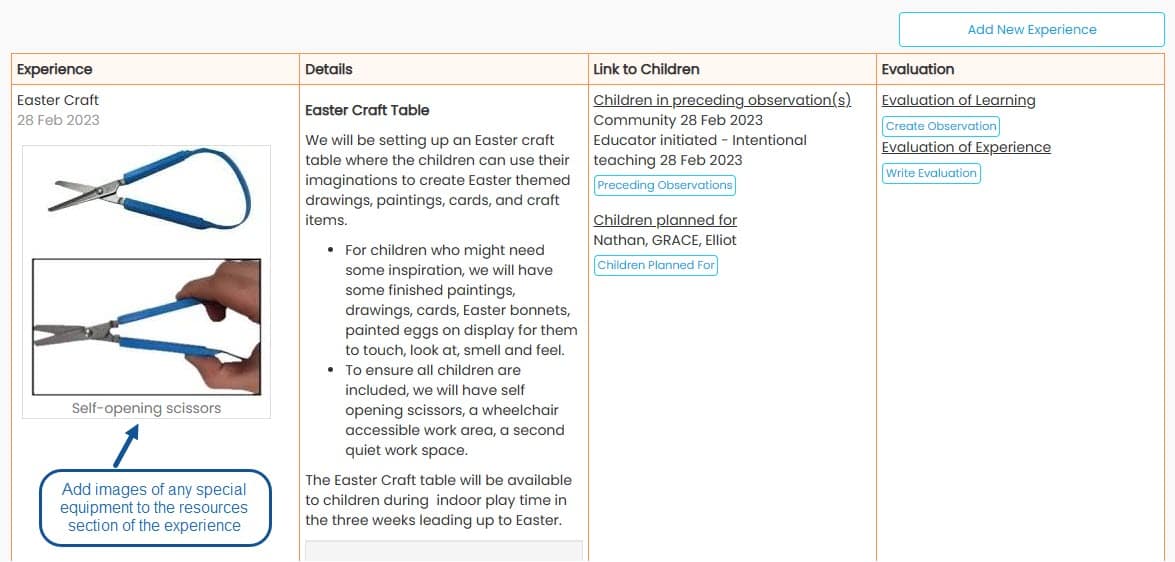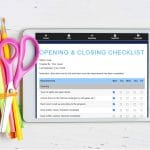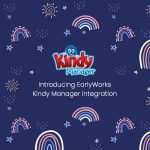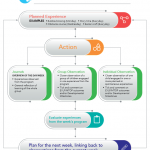Supporting services in meeting the requirements of the Disability Discrimination Act
“If a child can’t learn the way we teach, maybe we should teach the way they learn.” Ignacio Estrada.
If like me, you get a little bubble of excitement when the ACECQA Newsletter lands in your inbox, you will have noticed that the latest issue again highlights the importance of equity and inclusion and adhering to the Disability Discrimination Act (DDA).
Apart from being a legal obligation, supporting children in accessing all aspects of the program is just the right thing to do. And, from my conversations with Educators, I am confident most services do support all children, making adjustments to accommodate special needs so that every child can shine. The challenge lies in ensuring this support is clearly documented.
Ways to document inclusive practice:
- Using the ‘resources’ function, include images or documents illustrating inclusive practices in planned experiences.
- Add images, PDFs or Word documents as ‘resources’ in programs to illustrate inclusive strategies:
- images of sign language being used, inclusive tools such as self-opening scissors, pencil grips or sensory cushions
- PDFs of visual aids
- PDFs of plans for an accessible garden.
- Add images, PDFs or Word documents as ‘resources’ in programs to illustrate inclusive strategies:

- Link Observations to Experiences from previous Programs.
- We know that children’s learning is not always predictable, and that children will progress towards outcomes at different rates and in different ways. One way to document this, is to link your observations back to experiences from previous programs. You might for example add new equipment to the outdoor area and add this as an experience in the program. Months later, one of your children develops the skills to play on that equipment (for example riding a tricycle or balancing on a beam). Linking your Observation documenting the child’s achievement to the Experience from the previous Program is evidence of the child’s persistence, commitment, and confidence (Outcome 4.1), and evidence of the educator living out the NQS 1.2.3 ‘Child directed learning’.
Ways EarlyWorks allows educators to be inclusive:
- Make Experiences visible only to families linked to Children Planned For.
- Particularly helpful when you are planning experiences for one child, and do not want it to be shared with other families when they view the program.
- Invite children into rooms and include them in Observations, Journals, Planned Experiences and Daily Communications.
- Educators can use the invite function to include children from other rooms in their documentation. So if there is an activity going on in one room that would be appropriate for a child from a different room, they can be invited into the Observation/Journal, and then this can be shared with the family and importantly, any outcome comments form part of that child’s learning journey.
- Provide family logins for allied professionals.
- Family logins can be provided for speech pathologists, occupational therapists or educational psychologists working with children in the service. This family login will allow for communication between educators, families, and allied professionals (NQS 6.2 Collaborative Partnerships).
As well as being the right thing to do, being inclusive is a requirement under the National Quality Standard (3.2.1 Inclusive Environment). So today, or this week, might be an appropriate time to reflect on the wonderful initiatives your service has introduced ‘to support every child’s participation and to engage every child in quality experiences in both built and natural environments’.







